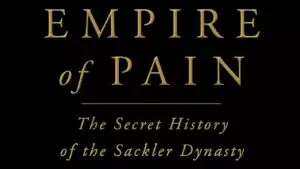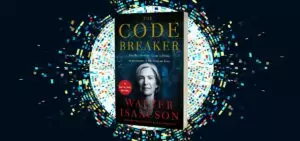By Mike Jakeman

✅ AI Essay Writer ✅ AI Detector ✅ Plagchecker ✅ Paraphraser
✅ Summarizer ✅ Citation Generator
Until the triumphant return of Jonathan Franzen in the autumn, it seemed that Christos Tsiolkas’ novel, The Slap, was a contender for the book event of the year. It has been both a critical and a commercial success, winning both the Commonwealth Writers’ Prize and a spot on the Booker longlist, from where it went on to out-sell even those that made the shortlist. As word spread, newspaper headlines accused the book and its author of misogyny (which only boosted sales further) and ensured that The Slap gained a measure of notoriety.
The setting for the novel is a suburban barbecue in Melbourne, which is attended by a cross-section of middle-class Australian society. The host, Hector, is of Greek descent, and his wife, Aisha, is Indian-Australian, while their guests include French-, Aboriginal- and regular ‘bogan’ Australians, and vary in age from Hector’s elderly father, Manolis, to his infant daughter, Melissa. Most of this group witnesses the book’s eponymous moment, which is delivered by Hector’s brother, Harry, to an insufferably spoilt three-year-old, Hugo, who is the son of Aisha’s best friend. The book is less concerned with the blow itself (a deftly handled set-piece that had this reviewer gripped) than its reverberations among Tsiolkas’ large cast, and what their reactions tell us about contemporary Australia.
The story is told in eight chapters, each of which belongs to a different character. Given that a key plank of Tsiolkas’ plot is the diversity of the responses to the slap, this would seem a sensible way to tell the story. However, creating eight characters of sufficient depth and credibility is a stiff challenge for any author (indeed, not every member of Franzen’s frequently large families is believable), and one that, on balance, gets the better of Tsiolkas. Many of the protagonists feel half-baked, products of a lack of imagination, and some lazy editing. Scriptwriter Anouk is a career woman with a younger boyfriend, who is faced by that most hackneyed of plot twists: an unexpected pregnancy. Harry, meanwhile, is an overly aggressive alpha-male with a misplaced sense of value, which is predictably demonstrated by his oft-spoken admiration for his expensive house and ‘his Dolce and Gabbana sunglasses and his black lycra Speedos’. Tsiolkas uses the same unsophisticated signposting to make his teenagers seem real, but he is let down by his editor who has them listen to ‘Gwen Stafani’ and attend a gig by ‘Snoop Dog’.
The problems that Tsiolkas has in developing his large cast are most apparent in the novel’s depiction of sex. There is a lot of it in The Slap, and, given the multiplicity of perspectives in the novel, one might expect to read a number of different representations of the act itself. Instead, Tsiolkas uses the same register for each of the protagonists, a sub-pornographic catalogue of dicks, tits, cocks, and cunts; all anatomy and no feeling. Here’s alpha-male Harry: ‘He lifted himself on the bedhead, got onto his knees. He continued fucking his wife in the mouth. He could see her gagging but when he stopped thrusting she clutched his arse and pushed him deep into her. He blew his cheeks out, stifled his shout and came with savage force’. For Harry, this approach to sex is not inappropriate. It is less fitting in the chapter given to Hugo’s sappy mother Rosie: ‘She continued doing it at the new school, the state school, full of boys to fuck. She had fucked and fucked, one night allowing herself to be fucked by seven of them, each taking turns. She had bled, her cunt had torn’. And it is even less apt coming from the otherwise sensitive Aisha: ‘Hector was now a jackhammer, slamming into her, she was full of him, as much in her belly as in her cunt, she buried her face into the coverlet, her outstretched hands were clutching at the sheets’. These three characters share nothing in the novel but mutual misunderstanding, yet Tsiolkas is unable to depict them as individuals in their most intimate moments.
These passages also highlight the laziness of the accusations of misogyny that have been levelled at The Slap. Harry, undoubtedly, has some very dubious views on women (his wife is a ‘faithful dumb animal’ who looks good in a bikini), but then he’s a little more pleasant about men (Gary, the father of the boy he slaps, is a ‘weak faggot of a husband’) or children (Hugo is ‘a whining little prick’). His vitriol is not provoked by a hatred of women, as much as a dislike for anything that prevents him from relaxing in his self-congratulatory bubble. Nor does the fact that the majority of Tsiolkas’ women are unpleasant mean that the novel is misogynistic; they are products of a society that the author regards as unhealthy rather than made dislikeable for the fact that they are female.
What The Slap appears to rail against is the perceived failure of liberalism in Australia in the era of John Howard. Here is a society built on the protection of the rights of the individual (Hugo, only three years old, asserts confidently ‘No-one is allowed to touch my body without my permission.’) and a policy of open immigration. The result, according to Tsiolkas’ novel, is a society that is angry, misunderstood, and resentful, and lacking a method of self-expression, even one as primitive as violence. These uncomfortable and conservative conclusions are wrapped inside a powerful narrative that has a real pull, and goes some way to explain The Slap’s wild popularity.
————–
Written under a Creative Commons License, with edits: https://creativecommons.org/licenses/by/1.0/
Follow us on Reddit for more insights and updates.





Comments (0)
Welcome to A*Help comments!
We’re all about debate and discussion at A*Help.
We value the diverse opinions of users, so you may find points of view that you don’t agree with. And that’s cool. However, there are certain things we’re not OK with: attempts to manipulate our data in any way, for example, or the posting of discriminative, offensive, hateful, or disparaging material.